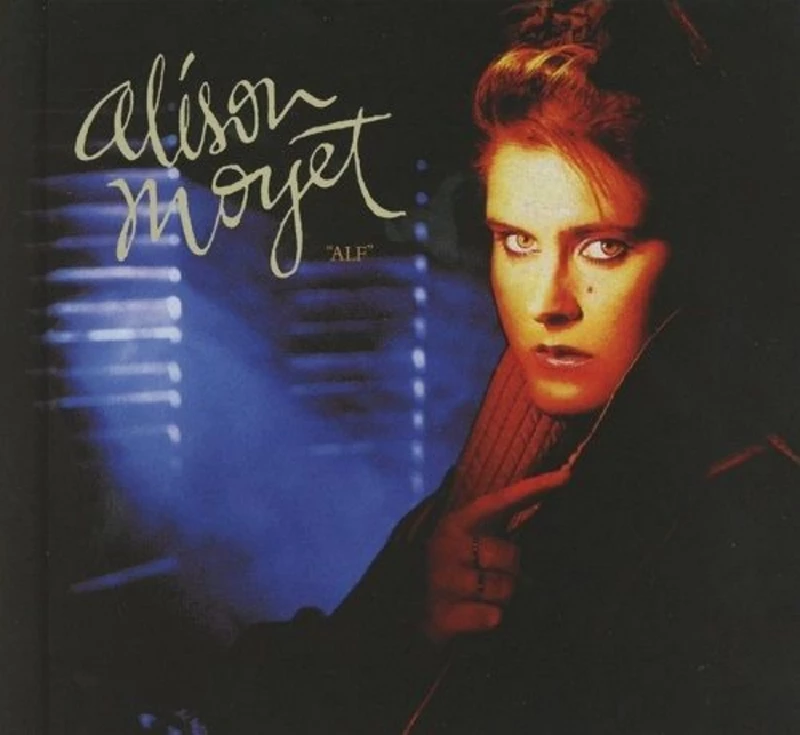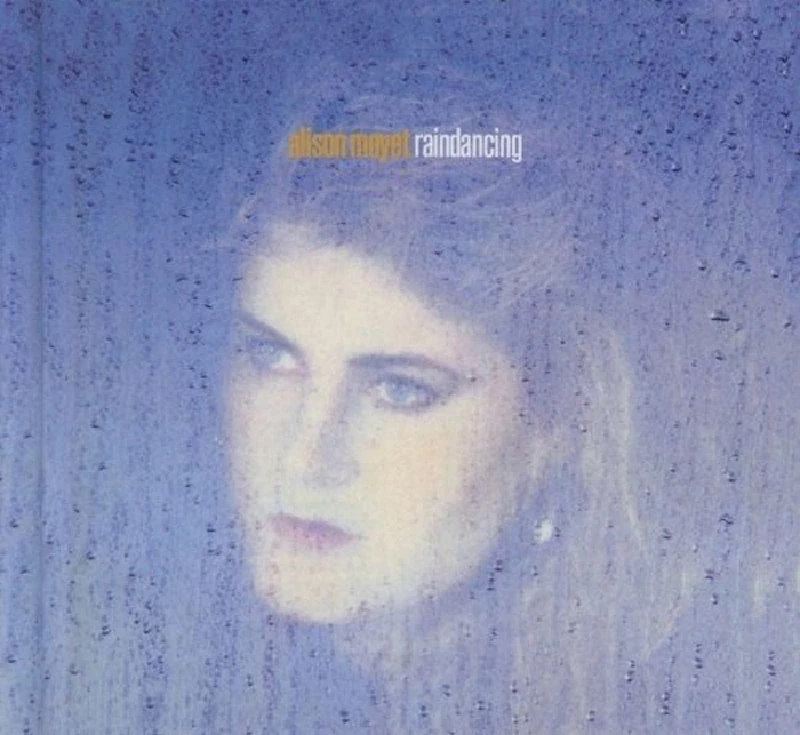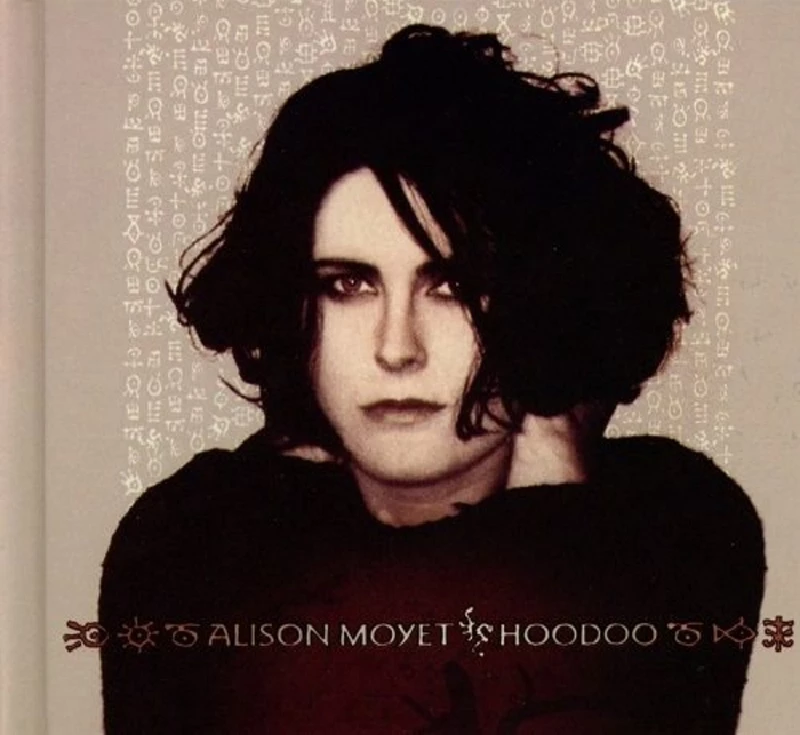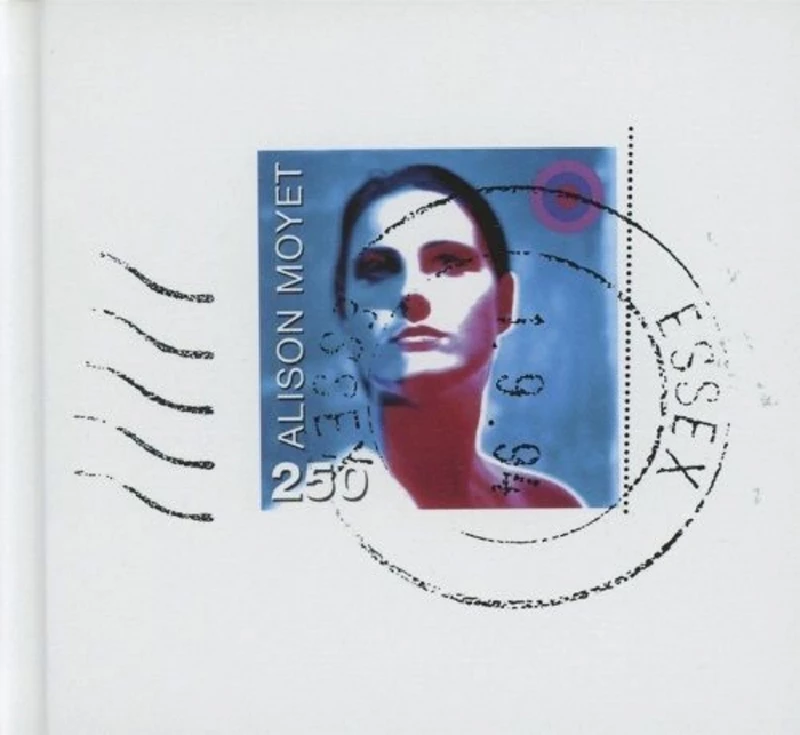Alison Moyet - Profile
by Adrian Janes
published: 17 / 3 / 2017

intro
The reissue of Alison Moyet’s first four albums gives Adrian Janes the chance to reappraise a versatile singer whose initial embrace of blues and electronica grew to include many other influences
Basildon became notable in the 1980s for two things: the media-created Essex Man, an archetypal working-class Labour voter who had made the switch to being a Tory supporter, and for a music scene which, although too late to catch the previous decade’s New Wave, was still inspired by it. But now, for the most forward-looking local musicians and singers, the new trend was electronic music. Among their number were Depeche Mode and Alison Moyet. Thirty years on, Moyet’s first four albums have been reissued in expanded deluxe editions. Her distinctive voice was first heard as half of Yazoo, the synth-pop duo she formed with ex-Depeche Mode founder Vince Clarke. Like contemporaries Soft Cell, Yazoo realised that electronic music did not necessitate the quasi-robotic vocals of a Gary Numan or Ralf Hütter. Paradoxically, Moyet’s bluesy soulfulness was heightened by being set against stately synths, as on their first hit, ‘Only You’. Yazoo lasted little more than a year, but ‘Alf’ (1984), Moyet’s first solo album and a number one, is still immersed in electronica (see ‘Love Resurrection’). Hints of her later evolution beyond such categorisation come on the piano-led soul ballad ‘Steal Me Blind’, while ‘Invisible’, written by Motown great Lamont Dozier, artfully entwines the strands of both styles. At times her voice has an androgynous timbre that will later be heard in Andy Bell, Clarke’s partner in Erasure. Although songs like ‘Honey for the Bees’ and ‘Twisting the Knife’ are little more than competent pop, there is a constant edge of passion and anguish to Moyet’s voice which gives depth to even the shallowest song. And those which provoke her to be most open and vulnerable, such as ‘All Cried Out’ (reputedly written in 10 minutes), call forth some genuinely thrilling singing. Occasionally, on follow-up ‘Raindancing’ (1987), the synths are almost supplanted by the Smiths, especially in the guitar lines of ‘Ordinary Girl’ and ‘Glorious Love’ (the latter, bafflingly, was not released as a single). They’re suggestive of a general effort to experiment with a broader musical palette, heard also in the bright splash of Herb Alpert’s trumpet on ‘Weak in the Presence of Beauty’, touches of accordion on ‘Without You’, and a preference for real drums over a drum machine, albeit that these are often given the typically unsubtle reverb beloved of the 1980s. Over the course of these four albums Moyet shows herself more than capable of being able to handle a variety of moods and tempos. But it’s the ballads which are consistently the most moving, giving her the time and space to truly express her range. On ‘Raindancing’, ‘Sleep Like Breathing’ (a duet with David Freeman of The Lover Speaks) plumbs the emotional depths, ‘Blow Wind Blow’ reveals her as at once yearning yet strong, while the sombre ‘Stay’ rings with defiance: “You leave me nothing in my home town/But I will hope/And I will pray/And I will stay.” With four years before her next album, ‘Hoodoo’ (1991), a pattern of long interludes between records became established. Moyet had by now determined that something had to change, and this change was signified by an album that brought her rock influences to the fore alongside those from blues, soul and funk, a parallel to a comparable shift in Paul Weller’s music. Synths remained, but as a subtler presence. How does ‘Hoodoo’ sound now? For the most part, it falls into the ‘unjustly underrated’ category. ‘Footsteps’ dances upon crisp, funky drumming combined with punchy brass and a Beatlesque guitar phrase, the chorus a mass of soulful Moyets. ‘It Won’t Be Long’ not only coincidentally name-checks a Beatles song, the guitar motif again evokes them, while Moyet’s ability to quickly shift vocal expression has her breathy singing of the verses moving in the chorus into an almost Lennon-like rawness, a powerful contrast that also fuels the title track. ‘Back Where I Belong’ demonstrates how far her brand of electronica has come, blending gritty vocals with washes of synth and the funky crunch of electronic percussion. Along with the intimate and enigmatically titled ‘My Right A.R.M.’ which follows, these are the album’s most completely successful songs. Meanwhile ‘This House’ is something of a Gothic castle of a song, an eerie but understated beginning with piano and acoustic guitar suddenly disrupted by drums and a big, emotive chorus that in the end leaves a feeling of it all being a bit overwrought. By contrast, the plaintive singing over brushed drums and strings of ‘Wishing You Were Here’ strikes deeper into the heart. The main problem with the other tracks is that they are a little unfocused, such as the riff in search of a song that is ‘(Meeting With My) Main Man’, or the stylistic stew of ‘Rise’, with its contending ingredients of folk, rock, soul and R&B. Closing track ‘Find Me’ is clearly intended as a consolatory anthem in the vein of ‘Lean on Me’ but despite the sincerity in Moyet’s voice (a quality that is never lacking in her work) there is a derivative feel to it, capped by the ‘Hey Jude’-type chant at the climax. Ultimately you want to applaud the musical adventurousness of ‘Hoodoo’, as the majority of the album works pretty well. Unfortunately this boldness was not widely appreciated. Commercially ‘Hoodoo’ proved something of a curse, with just a short stay in the charts and the later indignity of Moyet having to rerecord its successor ‘Essex’ at record company insistence, presumably in an attempt – ultimately unsuccessful - to restore both financial and artistic fortunes to 1980s levels. Perhaps in choosing the title ‘Essex’, this 1994 release was a gesture of defiance by Moyet, taking her stand on home ground at a time when “I was no longer (the record company’s) biggest-selling female act. I was fallible.” For the most part it certainly has, at least instrumentally, the kind of bright energy expected in an Ian Broudie (Lightning Seeds) production, whether the jaunty folk feel of ‘Falling’ or the dynamic ‘Lust for Life’ rhythm of ‘So Am I’. And whereas much of her previous output could be characterised as thematically orthodox for a woman (the various angles of romance, but especially romantic suffering), ‘Dorothy’ and the beautiful ‘Whispering your Name’ are more sexually ambiguous, while ‘Ode to Boy’ eagerly delights in the female gaze: “When he drives I love to watch his hands/white and smooth/almost feminine/almost American”. Once more it’s an album that embraces an encyclopedia of styles. Once more, it’s the ballads that display the most emotion and imagination, ‘Take of Me’ being the best example. Moyet’s voice is reverbed and multitracked, and she essays an almost Middle Eastern phrasing, the title and the atmosphere like some secular offertory. This moving experiment closes the album. All four of these rereleases are expanded to include alternative mixes and live versions, along with a few previously unreleased songs – the former don’t really add much to the original versions, and the unreleased material doesn’t suggest that there are vaults full of undiscovered gems. The exception is ‘Make A Change’, a collaboration with Nearly God, which combines impassioned vocals, thundercrack percussion and a grinding guitar phrase, as if from a session in the last days of the Birthday Party. It may not be to everyone’s taste. Yet the existence of such a track does reinforce the impression that, over the course of little more than a decade and already starting with a formidable voice, Moyet was willing and often able to successfully push her boundaries. Most of her audience didn’t seem to follow in the 1990s, but now they have a second chance, just as Moyet’s own career has had. Her most recent album, 2013’s ‘the minutes’, was independently recorded, returned to electronica and restored her to the kind of chart position she had in those early days.
Band Links:-
http://alisonmoyet.com/https://en-gb.facebook.com/AlisonMoyet/
https://twitter.com/AlisonMoyet
Picture Gallery:-




interviews |
|
Interview (2013) |

|
| Paul Waller talks to Alison Moyet about her electronic-fuelled first album in five years, 'the minutes' |
live reviews |
|
Cliffs Pavilion, Southend, 11/11/2017 |

|
| Adrian Janes watches Alison Moyet play a down-to-earth but gripping gig at Cliffs Pavilion in Southend |
most viewed articles
current edition
Carl Ewens - David Bowie 1964 to 1982 On Track: Every Album, Every SongArmory Show - Interview with Richard Jobson
John McKay - Interview
Colin Blunstone - Thalia Hall, Chicago, 16/7/2025
Billie Eilish - O2 Arena, London, 10/7/2025
Bathers - Photoscapes 1
Visor Fest - Valencia, Spain, 26/9/2025...27/9/2025
Loft - Interview
Sir Tim Rice - Interview
Robert Forster - Interview
previous editions
Manic Street Preachers - (Gig of a Lifetime) Millennium Stadium, Cardiff, December 1999Heavenly - P.U.N.K. Girl EP
Beautiful South - Ten Songs That Made Me Love...
Oasis - Oasis, Earl's Court, London, 1995
Peter Perrett - In Dreams Begin Responsibilities Interview Part One
Boomtown Rats - Ten Songs That Made Me Love....
Coldplay - Wembley Arena. London, 16/8/2022
Prolapse - Interview
Pixies - Ten Songs That Made Me Love...
Trudie Myerscough-Harris - Interview
most viewed reviews
current edition
Davey Woodward - Mumbo in the JumboSick Man of Europe - The Sick Man of Europe
Lucy Spraggan - Other Sides of the Moon
Amy Macdonald - Is This What You've Been Waiting For?
Phew, Erika Kobayashi,, Dieter Moebius - Radium Girls
Bush - I Beat Loneliness
Suzanne Vega - Flying With Angels
Alice Cooper - The Revenge of Alice Cooper
Blueboy - 2
Cynthia Erivo - I Forgive You
Pennyblackmusic Regular Contributors
Adrian Janes
Amanda J. Window
Andrew Twambley
Anthony Dhanendran
Benjamin Howarth
Cila Warncke
Daniel Cressey
Darren Aston
Dastardly
Dave Goodwin
Denzil Watson
Dominic B. Simpson
Eoghan Lyng
Fiona Hutchings
Harry Sherriff
Helen Tipping
Jamie Rowland
John Clarkson
Julie Cruickshank
Kimberly Bright
Lisa Torem
Maarten Schiethart